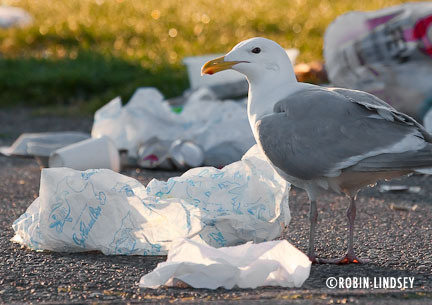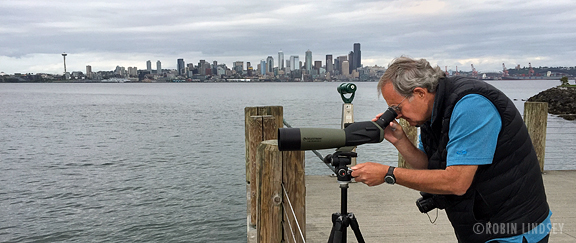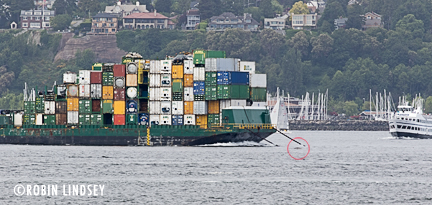May 2016
"Sentinels of the Sound" beach cleanup to help marine life
May/21/16 06:44 PM

Before volunteers disperse to clean up the beach, there will be a brief talk on the devastating impact of trash and debris on marine life.
Did you know that an estimated 80% of marine debris originates from land? Or that 360 billion cigarette butts are discarded in the U.S. alone each year - all of them leaching toxic chemicals into the soil and waterways? At last year’s beach cleanup, volunteers picked up an estimated 9,000 butts from Alki Beach (and adjoining sidewalks and street) in just a few hours.
Did you know that derelict fishing gear and plastics injure and kill many thousands of marine mammals and seabirds annually? All of which can be prevented by careful - and proper - disposal.
For Seal Sitters, derelict fishing gear is a very up close and personal issue. Please visit our website to find out why and for more details about the cleanup. Bags will be provided, but please bring your own gloves and pickup sticks. RSVP is requested.
Learn more about our dangerous waters on Seal Sitters’ website.
Gray whale confirmed dead in Puget Sound
May/09/16 08:59 AM

Yesterday, Seal Sitters volunteers again contributed to the efforts to monitor the struggling gray whale, which had been floating in Central and South Puget Sound for 15 days. The whale was unable to dive.
Based on a report to OrcaNet and from other members of the marine mammal stranding network, SSMMSN first responders sighted the gray at the entrance to Elliott Bay and tracked the emaciated whale’s movements throughout the afternoon, as it drifted slowly in the currents between West Seattle and Magnolia’s Elliott Bay Marina. Our observations led to a firm belief that the whale had died, as we could see no blows during our lengthy observation.
A number of pleasure craft and tour boats violated the Federal Marine Mammal Protection Act (MMPA) by approaching the whale within mere yards. This, long before official confirmation of the animal’s death. The MMPA law requires a minimum distance of 100 yards from whales. Yesterday’s photos of those vessels in violation are being forwarded to NOAA’s Office of Law Enforcement.

Late in the afternoon, a US Coast Guard boat on the water confirmed that the whale was deceased. Because the flukes and pectoral fins are so low beneath the surface, they are not accessible at this time to secure a tow line and enable a necropsy.
Should you spy the whale, please continue to report sightings in a timely manner to OrcaNet’s email so that the stranding network is aware of the location.
If the animal is sighted along the West Seattle shoreline, please contact our hotline as well at 206-905-SEAL (7325).
This has truly been a team effort of the stranding network groups and the public of Puget Sound. Learn more about the work of NOAA’s West Coast Marine Mammal Stranding Network here.
UPDATE: MAY 12, 2016
A necropsy was performed by Cascadia Research with assistance from the Navy, WDFW, NOAA, and the Pt. Townsend Marine Science Center. Due to trauma or illness (as of yet undetermined), gases were trapped in the organs of the whale which prevented the almost 30 ft female juvenile from diving and foraging. The whale was emaciated. Tissue samples have been sent out for tests. For more info and photos, please click here.







